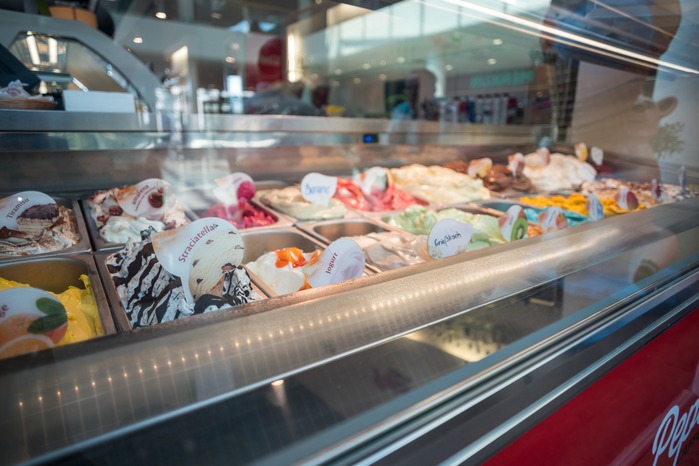
Freeze cookie dough already shaped into balls/drops, meatballs, berries and other small individual items separately on a baking sheet; when frozen, seal them in self-sealing freezer bags, label and date.
To store ginger: Wrap it well and store it in the freezer to maximize its shelf life and make grating easier.
Freeze boneless, skinless chicken breasts, beef and pork for 10 minutes before slicing for stir-fry: they’ll slice more evenly and quickly.
Defrost frozen meats in the refrigerator or by running cool (no warmer than 70 degrees) water over them (wrapped). Never try to speed up defrosting by allowing foods to sit at room temperature.
To freeze egg whites:
- Uncooked egg whites may be stored, covered, in the refrigerator for 4 days, or frozen (0 degrees F.) for up to 12 months.
- Because home freezers are opened frequently and/or often crowded, they may not maintain a constant temperature of 0 degrees. We advise freezing the whites for a shorter period or time; the Canadian Egg Board recommends 4 months.
- Freeze single egg whites (2 tablespoons) in ice cube trays. Transfer frozen whites to self-sealing freezer storage bags. Write the date on the bag immediately.
- Freeze larger quantities in amounts that don’t exceed what you will need to use in a recipe.
- Defrost the whites in the refrigerator and do not refreeze them.
To save leftover canned tomato paste: Place level tablespoons-full on a foil or plastic-wrap lined pan; freeze until solid.
Transfer the frozen paste to a self-sealing freezer bag, label and date. The frozen paste can be added directly to hot sauces, soups and stews.
To save leftover wine and canned broth: Divide leftovers among ice cube tray compartments; when frozen, transfer cubes to self-sealing freezer bags, label and date, and use in sauces and stews.
To save leftover egg yolks: Egg yolks thicken or gel when frozen and defrosted. To prevent this, The Canadian Egg Marketing Agency recommends beating either 1/8 teaspoon of salt or 1 ½ teaspoons sugar or corn syrup into every ¼ cup egg yolks before freezing them in an airtight container.
Be sure to label the container with the date, the number of yolks and ingredient added to prevent lumps. Use 1 tablespoon of frozen yolk for every fresh large egg yolk called for in the recipe; use salted yolks for savory dishes and sugared for desserts.
You may beat the sugar or salt into the yolks as directed and spoon tablespoons into an ice cube tray; freeze, then transfer to self-sealing freezer bag. Substitute 1 cube for every large fresh egg yolk called for in the recipe; that way, you don’t have to defrost larger quantities of frozen yolk when you have recipes calling for 1 or 2 eggs.

